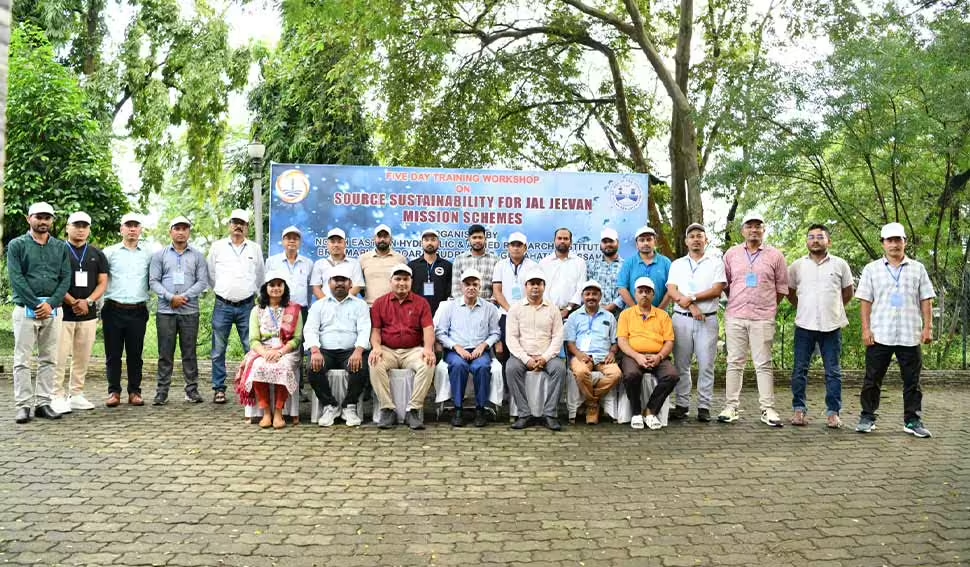Brahmaputra Board conducts training workshop on source sustainability for JJM

Under the leadership of Brahmaputra Board chairman Ranbir Singh, the North Eastern Hydraulic and Allied Research Institute (NEHARI) conducted a five-day Training Workshop on “Source Sustainability for Jal Jeevan Mission Schemes” in association with National Institute of Hydrology (NIH), Roorkee FROM September 24 to 28.
Various sources in the form of springs, streams, lakes and groundwater have been tapped for the Jal Jeevan Mission drinking water supply schemes for each and every household in rural areas.
Reducing water availability in these sources is posing huge challenges to ensuring water security for these schemes in the northeastern region. To achieve the over-arching goal of ensuring water supply to each household of the northeastern region, Source Sustainability measures have become the need of the hour. Following the recommendations of National Jal Jeevan Mission, Ministry of Jal Shakti on capacity building of state agencies for Source Sustainability of Jal Jeevan Mission schemes, this is the need of the hour to initiate various activities for protecting and ensuring the water availability in these sources round the year in the northeastern region.
For meeting this objective, the training workshop was inaugurated on September 24, by Dr Ranjit Deka, Director, NEHARI. In his inaugural address, Dr Pradeep Kumar, Scientist ‘E’ National Institute of Hydrologystressed upon the need of source sustainability for Jal Jeevan Mission schemes in the Northeast while discussing the efforts of NIH towards addressing the issues of diminishing sources across the Indian Himalayas.
The course of the programme is tailored for junior to mid-level officers of government departments related to land and water resources sector serving in Northeast.
This training workshop was designed with a view to inculcate knowledge on Source Sustainability for Jal Jeevan Mission Schemes to help in better conservation and rejuvenation of springs, streams and groundwater.
24 government officials serving in Arunachal Pradesh, Assam, Manipur, Nagaland & West Bengal have participated in the workshop. A total of 24 lectures, including four field lectures, were delivered by the scientists of NIH and CGWB on various topics pertaining to Jal Jeevan Mission Schemes. Scientists from CGWB, Guwahati & Shillong delivered an important lecture on the genesis of spring and Springshed management in the context of the region.
Scientist from NIH Roorkee delivered lectures on various types of sources, their flow dynamics, and interventions for source sustainability and conducted hands on exercise for data collection using open source mobile applications and conducted a hands-on exercise on digital data creation, handling, and processing using open source GIS software.
In a field trip to nearby two Jal Jeevan Mission Schemes (one spring-based and one stream-based), the participants were provided hands-on training for data collection and in-situ water quality testing.
The participants were also exposed to various interventions that can be made to augment the sources during the field visit. Officials of NEHARI Brahmaputra Board also demonstrated various lab facilities available in NEHARI to the participants being utilized for various works in Brahmaputra basin.
Dr Ranbir Singh was the chief guest of the valedictory programme and shared important ideas and visions pertaining to the domain. During the event, participants expressed their gratitude to the Brahmaputra Board for organizing the technical program.
They further conveyed that the theoretical and practical knowledge gained from the workshop would aid them in planning and executing source sustainability measures for various Jal Jeevan Mission schemes in their respective states and organizations.

Leave a Reply